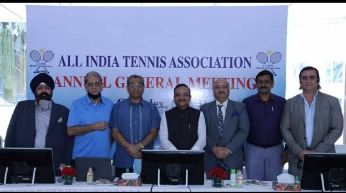Kolkata, July 28 : The World Health Organization on Thursday called for making quality hepatitis care affordable, accessible, and integrated into primary health care, to bring these lifesaving services closer to people and accelerate efforts to eliminate viral hepatitis in the WHO South-East Asia Region by 2030.
“Viral hepatitis is preventable and treatable. Yet, an estimated 60 million people live with chronic hepatitis B and about 10.5 million with chronic hepatitis C in our Region. Our efforts to eliminate viral hepatitis can only succeed if we ensure everyone everywhere has access to hepatitis services,” said Dr Poonam Khetrapal Singh, Regional Director, WHO South-East Asia Region, while addressing a virtual event to mark the World Hepatitis Day.
A strong advocate for elimination of viral hepatitis and a hepatitis survivor, Mr Amitabh Bachchan, said in a video message, “For a person living with hepatitis, every day is hepatitis day. I can feel the pain of a sufferer, the pain of my near and dear ones seeing me suffer. We need to ask. What will it take to prevent more people from losing their lives, their health to hepatitis? We need to bring care closer to communities.”
Hepatitis kills more people than HIV and malaria – nearly one person every 30 seconds, globally.
“We are calling on countries to integrate quality, accessible and affordable hepatitis care into primary health care services, in line with the Region’s new Strategy for Primary Health Care, as well as new WHO Global Health Sector Strategies on HIV, viral hepatitis and sexually transmitted infections (STIs),” the Regional Director said.
A new Regional Action Plan on viral hepatitis, HIV and STIs, is being launched in September with the aim to increase quality and efficiency, and leverage the full power of primary health care, universal health coverage and health systems. It will promote equity and innovation, and advance people-centred and community-driven approaches.
The Regional Director said, to bring hepatitis care closer to communities, and to eliminate hepatitis as a public health threat, several priorities must be addressed. Political commitment to eliminate hepatitis must be strengthened and investment into high-quality, people-centered hepatitis care must be increased.
“Access for all to safe and effective vaccines and drugs, and point-of-care diagnostics, must be improved, with a focus on increasing affordability,” she said.
Communication and community engagement strategies must be strengthened to reduce stigma and to increase awareness and testing, especially among populations at higher risk.
“Importantly, we must explore service delivery models that are close to where people live and work, and which are aligned with people’s needs, preferences and health-seeking behaviors. We need to shift from the specialist domain, and into communities,” the Regional Director emphasized.
Viral hepatitis can be prevented. Vaccination, especially Hepatitis B birth dose followed by other doses in childhood vaccination schedule; safe injection; safe blood transfusion and safe dental procedures are among key preventive measures. Equally important is timely detection to ensure treatment, as only 10% people with hepatitis are aware of their status.
Bachchan, in his video message on World Hepatitis Day, reiterated, “We must collectively resolve, communicate and act. Action to eliminate viral hepatitis cannot and must not wait.”
The virtual webinar organized by WHO South-East Asia Regional office was attended by national progamme managers from Member countries, experts, partners and representatives of organizations working at the community level.













